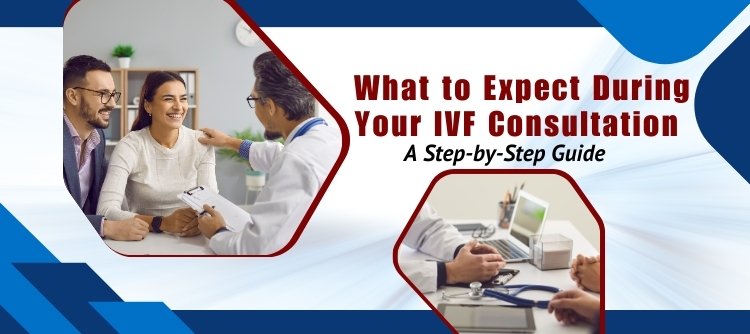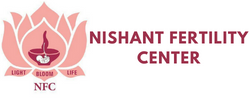What to Expect During Your IVF Consultation: Step-by-Step Guide

If you’re struggling with infertility, you may be considering in vitro fertilization (IVF). This assisted reproductive technology has helped millions of couples worldwide achieve their dream of starting a family. However, before embarking on the IVF process, you’ll need to attend an IVF consultation with a fertility specialist.
This initial appointment is crucial as it lays the foundation for your entire IVF journey. Your fertility doctor will thoroughly evaluate your situation, discuss your options, and develop a customized IVF treatment plan. To help you prepare, here’s a step-by-step guide on what to expect during your IVF consultation.
Step 1: Medical History Review
The consultation typically begins with a comprehensive review of your medical history. Your fertility specialist will ask questions about your overall health, any existing medical conditions, previous pregnancies or miscarriages, and your fertility journey so far.
Be prepared to discuss your menstrual cycle, any fertility treatments you’ve already undergone, and any lifestyle factors that could potentially impact your fertility, such as smoking, alcohol consumption, or exposure to environmental toxins.
Step 2: Fertility Testing
In some cases, your doctor may recommend additional fertility tests to gain a better understanding of your specific situation. These tests can help identify potential issues and guide the development of your IVF treatment plan.
For women, common tests may include:
- Ovarian Reserve Testing: Evaluates the quantity and quality of your remaining egg supply.
- Hysterosalpingogram (HSG): An X-ray procedure that checks for blockages in the fallopian tubes.
- Endometrial Biopsy: Examines the uterine lining’s receptivity for embryo implantation.
For men, common tests may include:
- Semen Analysis: Evaluates sperm count, motility, and morphology.
- Hormone Testing: Checks for potential hormonal imbalances affecting sperm production.
Step 3: Discussion of IVF Options
Once your doctor has a comprehensive understanding of your situation, they will discuss the various IVF options available to you. This may include:
- Conventional IVF: The traditional IVF process, where eggs are retrieved and fertilized with sperm in a lab, and the resulting embryos are transferred to the uterus.
- Intracytoplasmic Sperm Injection (ICSI): A specialized technique where a single sperm is injected directly into the egg.
- Donor Eggs or Sperm: Using donated eggs or sperm from a third party.
Gestational Carrier: Utilizing a surrogate to carry the pregnancy.
Your doctor will explain the pros and cons of each option, as well as their suitability for your specific circumstances.
Step 4: IVF Treatment Plan Development
Based on the information gathered and your preferred IVF options, your fertility specialist will develop a tailored IVF treatment plan. This plan will outline the specific steps involved, including:
- Ovarian Stimulation: Medication protocols to stimulate the ovaries to produce multiple eggs.
Egg Retrieval: A minor surgical procedure to collect the mature eggs. - Fertilization and Embryo Culture: The process of fertilizing the eggs with sperm and monitoring embryo development in the lab.
- Embryo Transfer: The procedure to transfer one or more embryos into the uterus.
Luteal Phase Support: Additional medication to support the uterine lining and aid implantation.
Your doctor will explain each step in detail, addressing any concerns or questions you may have.
Step 5: Financial Counseling
IVF treatment costs can be substantial, and your fertility clinic will likely provide financial counseling during the consultation. This will involve discussing the various expenses involved, such as:
- Medication Costs: The price of fertility drugs for ovarian stimulation and luteal phase support.
- Laboratory Fees: Charges for egg retrieval, fertilization, and embryo culture.
- Clinic Fees: Costs associated with office visits, ultrasounds, and embryo transfer procedures.
- Additional Costs: Expenses for any additional services, such as genetic testing or donor materials.
Your financial counselor will also review any insurance coverage you may have and discuss alternative financing options, such as payment plans or fertility loans.
Step 6: Emotional Support
Undergoing IVF can be an emotionally challenging experience. During the consultation, your fertility team may discuss the importance of seeking emotional support throughout the process.
They may recommend counseling services, support groups, or other resources to help you cope with the stress, anxiety, and emotional roller coaster that often accompanies IVF treatment.
Step 7: Next Steps
At the end of the consultation, your fertility specialist will outline the next steps in your IVF journey. This may include scheduling additional tests, starting medication protocols, or setting a date for your egg retrieval or embryo transfer procedure.
They will also provide you with any necessary instructions or guidelines to follow in preparation for the upcoming stages of your IVF treatment.
An IVF consultation is a crucial first step in your journey towards parenthood. By attending this appointment, you’ll gain a comprehensive understanding of your fertility situation, the available options, and the specific steps involved in your customized IVF treatment plan. Consulting with a specialized IVF Centre in Jaipur can ensure access to advanced IVF treatments and personalized care.
Remember, your fertility team is there to support you every step of the way. Don’t hesitate to ask questions, voice any concerns, or seek clarification on anything you’re unsure about. With the right information and guidance, you’ll be well-prepared to navigate the IVF process and increase your chances of achieving a successful pregnancy.
